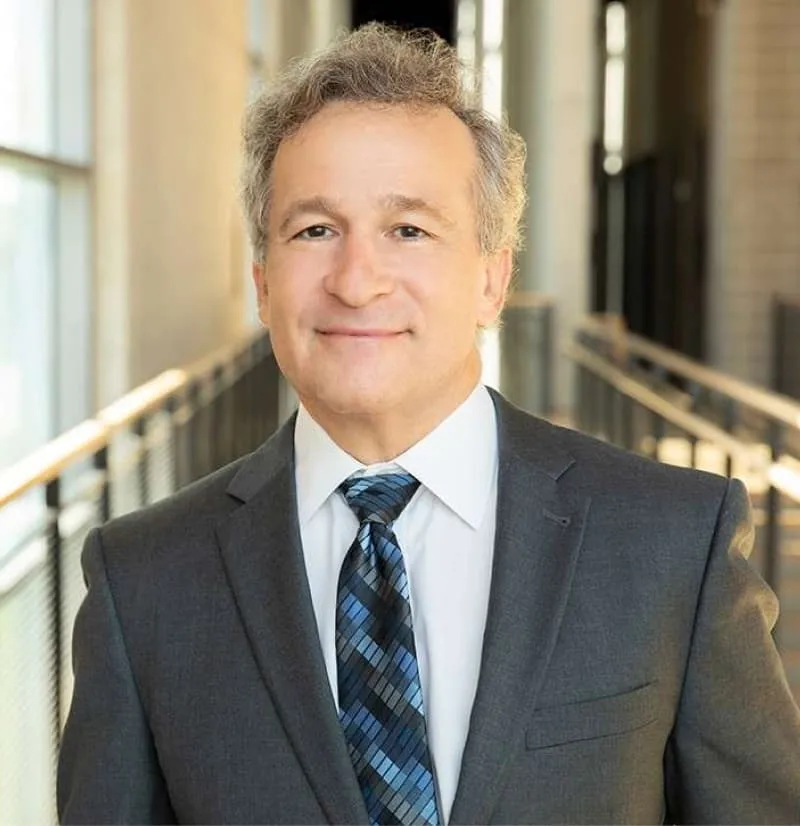Botched executions are in the news again.
The vast majority of states that allow for state sanctioned death penalty perform the execution via a three drug protocol.
The first drug is an anesthetic – such as propofol or a barbiturate.
The second drug is a neuromuscular paralytic agent.
The final drug is designed to stop the inmate’s heart (typically a solution of KCl).
If an inmate is not properly anesthetized, the second and third drugs cause conscious suffocation and intractable pain. States do not dispute the argument that an unanesthetized inmate exposed only to the second and third drugs in the three drug protocol would constitute Cruel and Unusual Punishment under the 8th Amendment.
Accordingly, lawyers for death row inmates have taken the position that states using the three drug protocol must employ the services of trained medical personnel for anesthesia. If states do not want to use the three drug protocol, the lawyers argue, they must use a different protocol.
The American Medical Association and the American Society of Anesthesiologists embrace the position that physician participation in state sanctioned executions is unethical. Even the Society of Correctional Physicians have opined the “the correctional health professional shall … not be involved in any aspect of execution of the death penalty.” The most a voluntary professional organizations could do to enforce its code of ethics would be to sanction the doctor. But, the doctor would still have a license to practice medicine.
Some anti-death penalty advocates have pushed various Boards of Medicine to discipline doctors who participate in executions. If these advocates had succeeded, participating doctors could have lost their license and be unable to practice medicine. In 2005, Dr. Arthur Zitrin filed a claim with the Georgia State Board of Composite Examiners. The Board refused to open an investigation. Zitrin then sued in state court, seeking a declaratory judgment that Georgia prohibit physicians from participating in public executions. The trial judge shut the case down quickly. He asked the attorney for Dr. Zitrin:”How many Georgia physicians belong to the AMA? I’d say less than a half. And you want to incorporate an ethical opinion from the AMA into Georgia law?” The case was appealed and the outcome was affirmed. The result “guarantee[d] that no physician [in Georgia] will be subject to disciplinary proceedings as a result of his or her participation in an execution.”
In California, state law authorized physician participation in executions. Nonetheless, in 1996, a group of doctors sued the state hoping for a declaration that physicians participating in such executions lose their licenses under state law. The appellate court ruled against the anti-death penalty advocates. It noted “surely the Legislature could not have expressly and implicitly provided for physician involvement in executions, and simultaneously subjected participating physicians to discipline or other legal sanctions from engaging in lawful conduct.’
Finally, the North Carolina Medical Board pre-emptively expressed a will to discipline doctors involved in executions. It issued a statement in 2007 warning such doctors may be the subject of disciplinary action. The Department of Corrections sued and the case percolated to the North Carolina Supreme Court. State law required physicians participate in such executions. The Supreme Court noted that the state legislature wrote both the state death penalty law and the Medical Practice Act which created the Medical Board. “To allow [the Medical Board] to discipline its licensees for mere participation would elevate the created Medical Board over the creator General Assembly.”
In state courts which have addressed the issue, the outcome has been consistent. If healthcare personnel are mandated by law to oversee state sanctioned executions, the State Medical Board is not empowered to discipline the doctor for mere participation.
Some state legislatures have gone one step further, not leaving the issue to judicial interpretation. Some states have created “safe harbors” explicitly preventing the state Medical Board from sanctioning doctors who participate in executions. Illinois was among the first states to grant this immunity to physicians. The legislature enacted the shield law in response to a complaint asking the Illinois Medical Board discipline those doctors willing to participate in the execution of John Wayne Gacy, the mass murderer. Gacy lured victims to his house by force or deception and murdered by either asphyxiation / strangulation with a tourniquet. Gacy buried 26 of his victims in the crawl space of his home. Gacy became known as the “Killer Clown” due to his charitable services at fundraising events, parades and children’s parties where he would dress as “Pogo the Clown.”
Doctors have given various reasons for participating. And such doctors believe their actions conform to general medical ethical principles. One doctor, Dr. Carlo Musso, says he feels an obligation not to abandon inmates in the final moments of life. He explained,”[T]his is an end-of-life issue, just as with any other terminal disease. It just happens that it involves a legal process instead of a medical process. [A death penalty] patient is no different from a patient dying of cancer – except his cancer is a court order.”
Dr. Kenneth Baum noted: “Condemned death row inmates are, for all practical purposes, terminally ill patients, albeit under a nontraditional definition of the term, and deserve to be treated as such.” He continued, “[t]o desert these individuals in their most vulnerable hour would be antithetical to the beneficent ideals of medical practice.”
In sum, if state law mandates a doctor participate in executions, the state Board of Medicine generally cannot discipline a doctor for following the law. More detailed discussion of this issue can be found in an excellent review article by Ty Alper: The Role of State Medical Boards in Regulating Participating in Executions





The interesting thing in this debate is how anyone could botch an execution by lethal injection.
There is only one thing they need to get right: reliable IV access.
So if there is a problem with that, put one in each arm and run the agents simultaneously into both arms.
Give a enough propofol alone and the patient would die. And I hear that Conrad Murray MD is available for consultation.
And provide enough muscle relaxant and the patient wouldn’t breath and would die.
Potassium chloride? Purely unnecessary if you gave enough of either of the first two drugs. But if either of the first two were given the patient would never feel this.
The problem they’ve been having can either be due to too small of doses or having only solitary IV access.
What’s my point? If they dosed this right and gave themselves back-up IV access there would be no need for a doctor. Then this entire discussion would be unnecessary.
How about if a doctor holds a license in a non-capital punishment state, and the doctor participates in an execution in a capital punishment state?
Say, a doctor holds a Texas license, and also happens to hold a Massachusetts license. To my understanding, Texas allows capital punishment, and Massachusetts does not.
The doctor participates lawfully in a Texas execution.
Could that doctor be sanctioned in Massachusetts
Contrary to the opinion in the Georgia case above, in Ohio, physicians may be disciplined by the State Medical Board for violating a medical code of ethics and specifically that of the AMA.
O.R.C. 4731.22. Grounds for refusal to grant and revocation of certificate …, states in relevant part:
(18) [V]iolation of any provision of a code of ethics of the American medical association, the American osteopathic association, the American podiatric medical association, or any other national professional organizations that the board specifies by rule. The state medical board shall obtain and keep on file current copies of the codes of ethics of the various national professional organizations … .
Moreover, O.R.C. 4731.224 mandates that any medical practitioner who believes that any violation of 4731.22 has occurred SHALL report it to the State Medical Board. Standing to report is not an issue.
As a (retired) limited license doctor the chances of my being asked to participate in executions are nil. But your likelihood is not much greater. There are very few executions in the US. Those who are asked or volunteer would likely already have a “working relationship” with a penitentiary. Even if it is “legal/not subject to Board discipline” for physicians to take part in executions, that does not relieve them from the morality of that decision. There remains the bitter legacy of physicians who actively murdered victims for the German Nazis during their monstrous 12 year reign.
I have no intentions of preaching or trying to provide you with conscience. I’m hardly in any position to. But there are some thoughts that come to mind.
WWII history should remain in the conscience of every physician who seriously considers taking part. There are two methods: Active and passive.
Obviously installing the IV, doing a surgical venous cutdown, setting up the drug(s) and starting their flow is active. Pronouncing the convict dead is passive, or at least is arguably so. But there still are enormous differences between the Nazis and the modern American State model of justice. That difference can be characterized by two words: Due process.
For religious physicians any form of participation may be forbidden. For those without that, their morality may allow it. But you made the decision to become a doctor and took an oath and that separates you from the rest of the population.These are issues that cut to the very heart of what it means to be a physician.
Since “due process” is such an important part of the decision for assigning justice, it makes sense for the doctor contemplating participation to make a separate examination of those specific elements before making their decision.
This means reading the trial records and appeals for yourself. That would certainly separate you from prison staff which takes the conviction and punishment as a matter of trust in the system.
You might decline based upon your review. Or the records might confirm your decision to actively participate. At the very least your final decision should be based upon the same special care you allocate to your other life/death “treatment” choices.
It seems to me that you can expect nothing less from yourself.
Michael M. Rosenblatt, DPM
As someone who uses IV sedation I have to constantly monitor the patient’s airway and responsiveness to endure a safe sedation. I don’t understand what is so difficult to kill an inmate. Any general anesthetic given in a massive dose will suffice. Alternatives would be inhalation anesthesia as highly reliable and without any difficulty of IV access. Even nitrous oxide as pleasant as it is when given as a sole agent is lethal.
As to morality I would choice not to participate but I would deny them any health care beyond palliation.